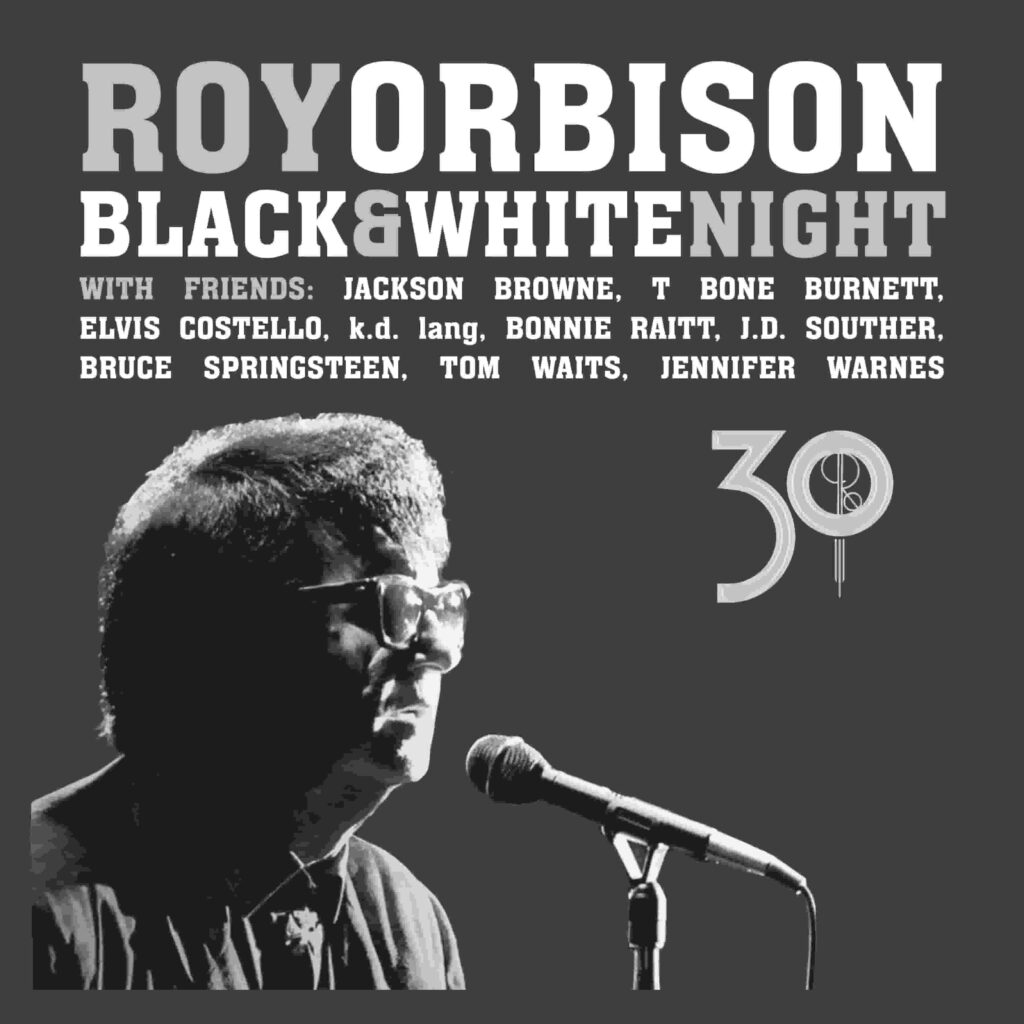
A Song of Finality Reborn in the Twilight Glow of Legacy
When Roy Orbison stepped onto the stage for A Black and White Night the now-legendary 1987 televised concert immortalized on the live album A Black and White Night he was revisiting one of the towering triumphs of his early career. It’s Over, originally released in 1964, had soared to No. 1 on the UK Singles Chart and reached the Top 10 on the Billboard Hot 100 in the United States. In this concert setting, decades after its chart success, Orbison offered the song anew: not as a young man stunned by heartbreak, but as an artist whose voice had endured its own weathering, gathering a depth only time can bestow.
What makes this performance remarkable is how effortlessly Orbison reinhabits the emotional architecture of It’s Over, a song whose lyrical world is built on quiet devastation. At its core, this is a narrative of love’s final extinguishing a recognition not of sudden loss, but of a collapse that has already taken place. The verses unfold like the stillness after a storm: the pleading is finished, the tears already shed, the silence now absolute. Yet Orbison never dramatizes the pain. His tenor, famed for its operatic reach, instead moves with an aching restraint, as if he is tracing the ruins rather than reliving the catastrophe.
In the A Black and White Night performance, the song’s familiar contours take on new resonance. Surrounded by an ensemble of admirers artists like Bruce Springsteen, Elvis Costello, and k.d. lang Orbison becomes the quiet center of a reverent constellation. The arrangement remains faithful to the original’s orchestral sweep, but what stands out is the maturity in his phrasing. Every sustained note feels heavier, more inhabited. The once-youthful lament is transformed into a reflection an understanding that endings, though painful, are an inescapable part of living.
Lyrically, It’s Over has always been a song built on finality, but its emotional power lies in its refusal to explode. Instead, it compresses heartbreak into an almost ceremonial declaration. The repeated phrase “it’s over” is not shouted it is surrendered. This surrender becomes profound in the concert version, where Orbison’s voice, seasoned by decades of triumph and tragedy, carries a gravity the original could only foreshadow. It is the sound of a man who has learned that heartbreak does not shout; it lingers.
Within the broader tapestry of Orbison’s catalog, the A Black and White Night rendition stands as one of the most luminous reinterpretations of his own work. It reminds us that songs evolve as their singers do, that grief changes shape over time, and that a final word spoken in youth can echo differently more beautifully, more truthfully when spoken again in the late light of legacy.